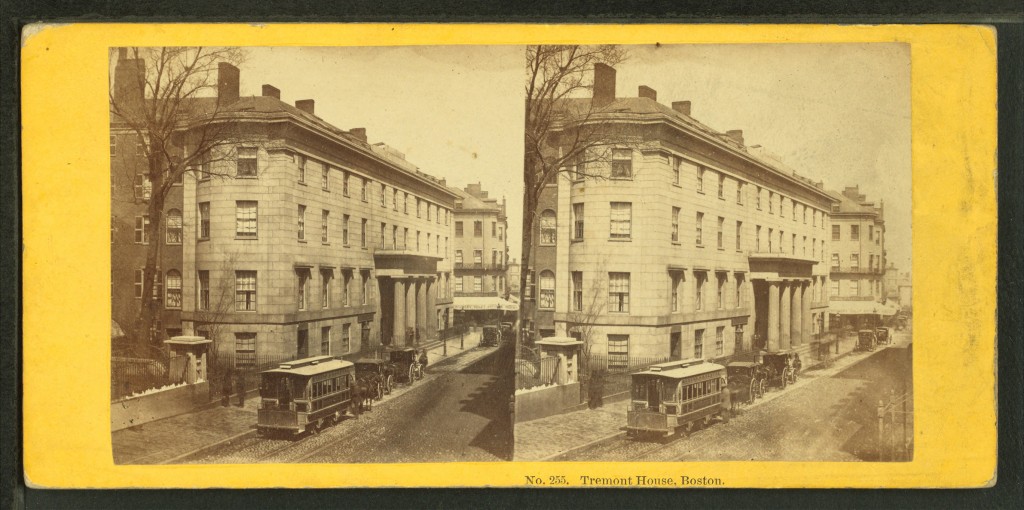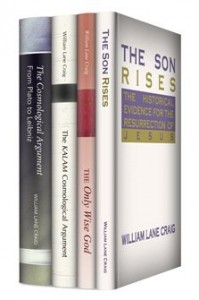In the years since its publication, William Lane Craig’s The Kalām Cosmological Argument has become a favorite of Christian apologists—and has been subject to fierce debate with prominent atheists such as Christopher Hitchens and Sam Harris.
In the book, Craig attempts to demonstrate that, at some point, the universe began to exist. This seems simple, but by doing so, he can then argue that the universe was caused to exist by a creator. To prove that the universe had a beginning, Craig employs a paradox conceived by the German mathematician David Hilbert:
Let us imagine a hotel with a finite number of rooms, and let us assume that all the rooms are occupied. When a new guest arrives and requests a room, the proprietor apologizes, ‘Sorry—all the rooms are full.’

Of course, if this hotel contained an inifinite number of rooms, this wouldn’t be a problem . . . even if all the rooms were full. Craig explains:
When a new guest arrives and asks for a room, the proprietor exclaims, ‘But of course!’ and shifts the person in room one to room two, the person in room two to room three, the person in room three to room four, and so on . . . The new guest then moves into room one, which has now become vacant as a result of these transpositions.
Because there is an infinite number of rooms in the hotel, the proprietor can continue to shift the guests around in order to free up rooms—even though every room is full! If that concept doesn’t make your brain hurt, perhaps the next part will:
But now let us suppose that an infinite number of new guests arrive, asking for rooms. ‘Certainly! Certainly!’ says the proprietor, and he proceeds to move the person in room one into room two, the person in room two into room four, and the person in room three into room six, the person in room four into eight, and so on . . . In this way, all the odd-numbered rooms become free, and the infinity of new guests can easily be accommodated in them.

If you’re having trouble keeping track of all this gerrymandering, don’t feel alone. Mathematicians, philosophers, and theologians have long puzzled over this paradox, but they are in agreement on one thing: such an absurd hotel could never actually exist.
And that is precisely Craig’s point. This seems like a simple conclusion to draw from such a complex, mind-bending thought experiment. However, it has profound implications. Craig argues that physicists and philosophers who propose a beginningless universe simply cannot be right.
Here’s how he puts it in his introduction to apologetics, Reasonable Faith:
If the universe never began to exist, then prior to the present there have existed an actually infinite number of previous events. Thus, a beginningless series of events in time entails an actually infinite number of things, namely, events.
However, as the paradox of Hilbert’s hotel demonstrates, such a notion is absurd. Having established that the universe must have had a beginning, Craig is free to argue that someone must have caused the universe to exist, namely, God.
Save on the Select Works of William Lane Craig!
Including The Kalām Cosmological Argument and The Cosmological Argument from Plato to Leibnizi, this collection is a great introduction to the work of an influential apologist.




For a number of reasons I agree that the universe must have had a beginning. And it seems reasonable to me that, as Craig said, “a beginningless series of events in time entails an actually (actual?) infinite numbers of things, namely, events”. But the reason given why the notion of Hilbert’s hotel paradox is absurd, seems to be that “mathematicians, philosophers, and theologians. . .are in agreement on one thing: such an absurd hotel could never actually exit”. That sounds like an ‘appeal to authority’ and not an argument. Am I missing something hear?
Hi, toddsley.
Thanks for your thoughtful response! In his book, Craig spends a lot of time explaining how Hilbert’s Hotel demonstrates the impossibility of an actually infinite set. There wasn’t enough room in a 700 word blog post to get through all of that, but the basic idea is that an actually infinite set presents too many mathematical absurdities to exist in the real world. Craig doesn’t appeal to authorities to make his case, he appeals to the absurdities presented by this paradox.
Hope that helps!
In reply to Smith’s reply, an infinite set only presents “mathematical absurdities” in naive set theory (as Craig points out in the early pages of his Second Premise chapter.) Axiomatic set theory (varieties of which are the set theories in use by mathematicians and logicians) does not contain absurdities. Craig leaves us hanging about what we should do with the great majority of current pure and applied mathematics and the sciences which rely upon them. This is a drastic consequence of his argument and is felt most keenly by those he is trying to convince.
I agree with Smith’s response above that Craig’s argument against the reality of an actual infinite is not an appeal to authority. However, I do see it as an appeal to experience (as the impossibility of an observable and therefore physical infinity) which is equally invalid. I also find Craig’s argument to be fatally vague on the notion of what is “real”. This takes us way off into metaphysics (including, especially, modality), but I don’t think that can be avoided if one is to get to a convincing defense or rebuttal of the possibility of an actually infinite set.
One defense I make of that possibility is an appeal to the existence of the biblical God (who is infinite, and/or has infinite attributes if God does have attributes.) Who or what could be more “real” than God? And the biblical God is anything but potential (e.g. Ps90:2; Mal3:6.) So if God exists, an actual infinite exists. (I am not claiming that God is a set, and that is not needed to attack Craig’s argument.) Concerning time, the domain to which Craig limits his argument, if an actual infinite does not exist, what are we to do with the biblical doctrine (and the believer’s hope) of the eternity of human souls? Jesus didn’t say that He came to give a potentially eternal (infinite) life. I realize that these arguments, which assume God exists, don’t help Craig who is trying (per impossibile) to prove that God exists.
I am a believer, and a set theorist, and if his entire argument is that “Hilbert’s hotel shows that an actually infinite set could not exist,” it is misleading and just plain out wrong. The example of Hilbert’s hotel was constructed not to show that an actually infinite object could not exist, but to show that the infinite may differ in character, even in simple circumstances, from the finite.
You will find no mathematician or physicist claiming that Hilbert’s hotel shows that an infinite set could not exist. Lane talks about the subject of “Set theory”, and fails to mention that the entire purpose of the subject is to study the actually infinite.
Things like this is why well-intentioned people do a little bit of research and conclude that no one must actually have an argument for religion – most of the arguments given are already either agreed upon to be wrong, or are arguments like these which talk about things without knowing what they’re talking about.